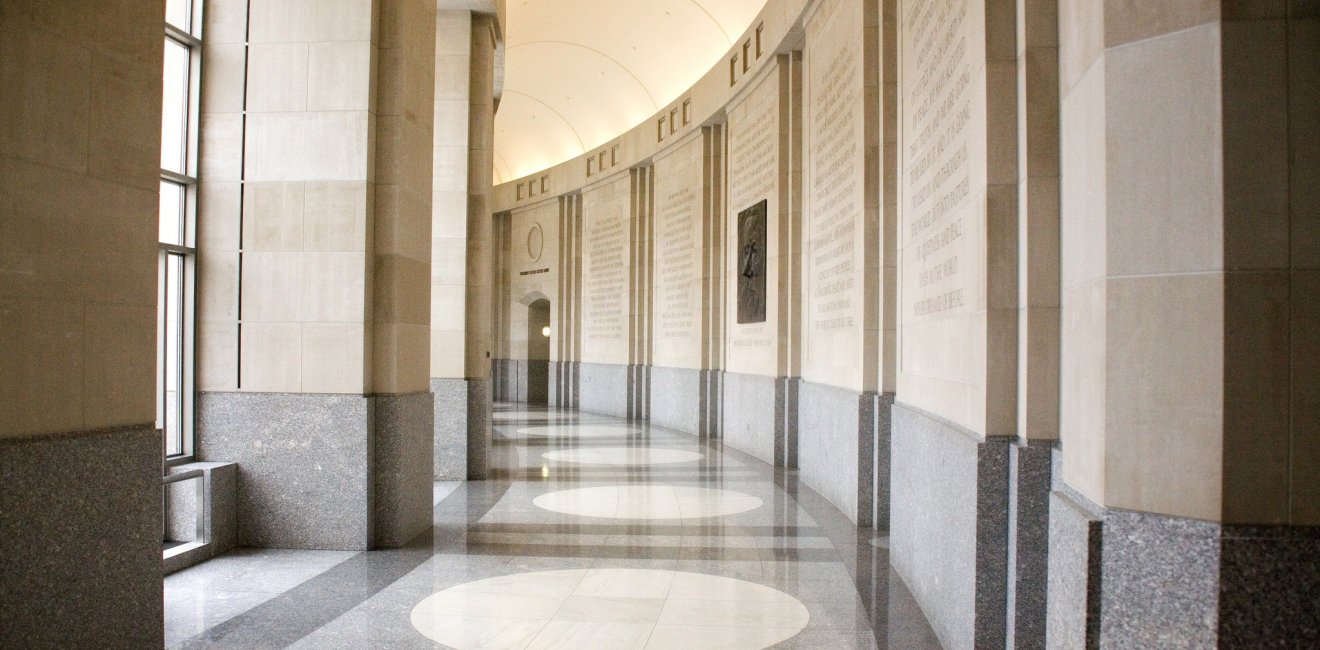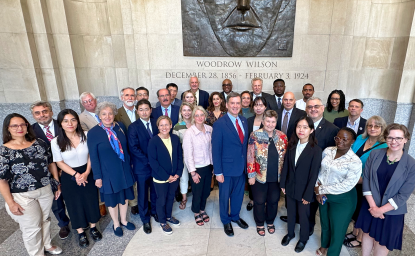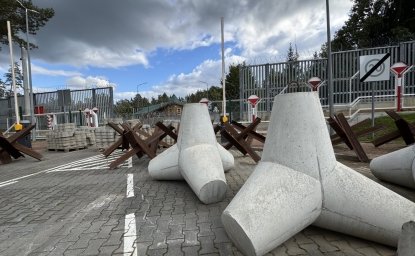
WASHINGTON - Ambassador Mark Green, Director, President and CEO of the Wilson Center, is pleased to announce the members of the 2021-2022 fellowship class. The 21 fellows include scholars and practitioners from the United States, Australia, Brazil, Canada, Germany, India, Moldova, Nigeria, Russia, and the United Kingdom. The 2021-2022 fellows are listed below along with the projects they will pursue while in residence at the Wilson Center.
Daniel E. Agbiboa, Assistant Professor of African and African American Studies, Harvard University. “Civilian Defense Groups and Counterinsurgency in Northeastern Nigeria.”
Daniela Campello, Professor of Political Science and International Affairs, Getulio Vargas Foundation, Brazil. “The Politics of the Anti-China Sentiment in Brazil.”
Niambi Carter, Associate Professor of Political Science, Howard University. “Special Procedures: Race, Place, and U.S. Haitian Refugee Policy (1973-2017).”
Colin Chapman, Professor of Anthropology, George Washington University. “The Science-Policy-Action Interplay: What is the Role of Communication in Action?”
Chantal de Jonge Oudraat, Member, Board of Directors of Women In International Security (WIIS) and its President from 2013-June 2021. “Men, Masculinities and International Security.”
Alexis Dudden, Professor of History, University of Connecticut. “The Opening and Closing of Japan, 1850-2020.”
Diana Dumitru, Associate Professor of History, Ion Creanga State University of Moldova. “Indispensable Yet Suspect: Soviet Jews Under Late Stalinism.”
Daniel Fitzpatrick, Professor of Law, Monash University, Australia. “Tipping Points: Land Tenure, Climate Change and Human Mobility in Situations of Fragility, Conflict and Violence.”
Robert Frieden, Emeritus Professor of Telecommunications and Law, The Pennsylvania State University. “Digital Sovereignty and Weaponizing Radio Spectrum Management: The Risks and Rewards.”
Nigel Gould-Davies, Senior Fellow for Russia and Eurasia, International Institute for Strategic Studies, United Kingdom. “The Political Economy of Russian Power.”
Roger Hart, Professor of History, Texas Southern University. “Quantum States, Quantum Entanglements: China, the U.S., and the Global Race for Quantum Supremacy.”
Sanjay Kathuria, Adjunct Professor/Visiting Faculty, Georgetown University/Ashoka University; Senior Visiting Fellow/Non-Resident Senior Fellow, Center for Policy Research, New Delhi/Institute of South Asian Studies, Singapore. “Trade, Trust and Peace: Nudging the Future of Two Billion South Asians.”
Stephan Kieninger, Independent Researcher. “Strobe Talbott: Bill Clinton's Russia Man.”
Lucian Kim, Moscow Bureau Chief, National Public Radio. “Convergence: How Globalization Destroyed the Soviet Empire and Turned on the West.”
Nadia Oweidat, Assistant Professor of History and Security Studies, Kansas State University. “A Million Clicks to Freedom: The Virtual Battlefield of Ideas in the Arab World.”
Donna A. Patterson, Professor, Department of History, Political Science, and Philosophy, Delaware State University. “Ebola, West Africa, and the World.”
Laura Robson, Oliver-McCourtney Professor of History, The Pennsylvania State University. “The M-Project: The Middle East and the Origins of Modern Refugee Policy.”
Cynthia Sanborn, Professor of Political Science and Researcher, Center for China and Asia-Pacific Studies, Universidad del Pacifico, Peru. “Latin America, China, and the Challenges to Resource Governance.”
Joshua Shifrinson, Associate Professor of International Relations, Pardee School of Global Studies, Boston University. “Shaping the Future: Great Powers and the Management of Future Peer Competitors.”
Alexey Tsykarev, Chairman, Center for Support of Indigenous Peoples and Civic Diplomacy ‘Young Karelia’, Russia. “The Role of Indigenous Peoples in Arctic Diplomacy and Governance.”
Cesar Zucco, Associate Professor of Political Science and Public Policy, Getulio Vargas Foundation, Brazil. “Mitigating the Volatility Curse: Political Challenges of Commodity Dependency.”
Media with questions should contact Ryan McKenna at ryan.mckenna@wilsoncenter.org or by phone at (202) 691-4217
Notes to Editors
- The Wilson Center provides a strictly nonpartisan space for the worlds of policymaking and scholarship to interact. By conducting relevant and timely research and promoting dialogue from all perspectives, it works to address the critical current and emerging challenges confronting the United States and the world.
Explore More
Browse Insights & Analysis
Wilson Center Research Fellowship

WILSON CENTER ANNOUNCES NEW COMPETITION FOR 2026-2027 RESEARCH FELLOWS
